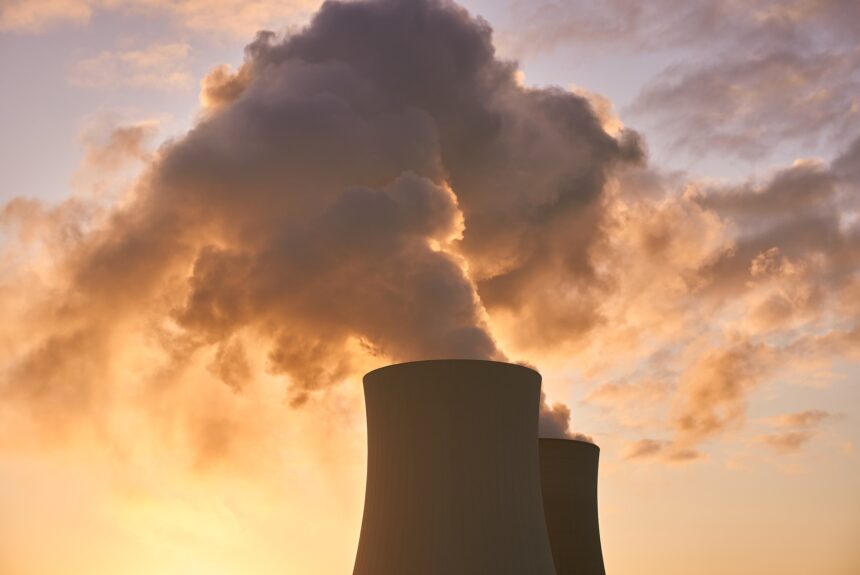Amidst the Russia-Ukraine war, Europe is facing an energy crisis with many countries gearing up for a winter potentially filled with blackouts due to insecure energy supplies. While the continent may benefit from a mild November, Europe should also embrace a generational opportunity: a chance to kickstart a reliable energy future.
>>>READ: Three Seas Initiative Could Save Europe From Energy Crisis
Europe is feeling the pressure: power prices have reached record highs in Germany and gas prices on the continent are now 10 times higher than usual at this time of the year as Russia suddenly stopped delivering gas to European countries. Various European governments are imploring customers to pull back on their gas usage while simultaneously dealing with potential blackouts and even industrial bankruptcies.
Europe is trying absolutely everything to reduce its energy usage in the coming months. From fining air-conditioned stores who don’t close their doors to advising workers against wearing ties and recommending to citizens to begin gathering wood for the winter, countries are taking drastic measures to save power.
Unfortunately, the same governments are failing to meet their own benchmarks, even after the government stashed away $280 billion to address skyrocketing energy prices which are proving to not be enough. Some countries implemented tax cuts to prevent prices from rising which backfired and led the government to print more money, contributing to rapid inflation, higher costs and more utility bailouts. Italian workers will receive a $200 bonus to adjust to a higher cost of living and the automotive sector will receive an $800 million fund to alleviate soaring energy usage while U.K. households will receive nearly $500 from the central government to help pay for utility bills this winter. All of this government spending, coupled with already high inflation, will inevitably fail to solve the problem and lead to higher costs for consumers.
Countries across the region will be forced to look for several energy alternatives if Russia decides to entirely cut off its gas exports to the rest of the continent. Gazprom, Russia’s state-owned natural gas company, slowly pulled back gas transports in 2021 to, in retrospect, prepare for their invasion in Ukraine. Now, Gazprom has the opportunity to completely restrict gas supply to Europe, which supplies around 45 percent of European imports. If this happens, the International Monetary Fund projects economic catastrophe for countries such as Hungary, Slovakia and the Czech Republic, whose GDPs could drop by more than 6 percent.
In the midst of this economic uncertainty, Europe has an opportunity to rebuild its energy sector to become more secure, affordable and clean by following commonsense solutions.
For starters, leaders need to embrace an “all of the above” energy strategy that emphasizes nuclear power. After Germany began to shut down domestic nuclear and fossil fuel production in 2011 and chose to import Russian energy through the Nord Stream pipeline, it gave up any potential domestic energy independence.
>>>READ: As Europe Faces an Energy Crisis, Nuclear Power Gains Momentum
When Germany announced the closure and planned phase-out of its remaining nuclear plants this year, its energy crisis worsened, forcing them to delay their phase-out by extending the life of three plants that account for more than 11 percent of the country’s energy supply.
As Germany waged its war on nuclear power, EU member states drastically reduced firm, dispatchable fuel sources that protect consumers from the intermittency of solar and wind energy. A multitude of countries restricted fossil fuels and even banned fracking. At a time where European natural gas production has been cut in half and imports account for more than 80 percent of Europe’s gas usage, the failure to address an energy shortage before the crisis began should’ve spelled disaster before it even surfaced.
The answer isn’t to nationalize utilities and subsidize consumers. European leaders must let the free market naturally flow instead of setting price caps and taxing already-ravaged energy producers.
This is Europe’s chance to adopt a fresh approach to designing sound energy policy. For far too long, Europe’s lawmakers have kicked the can down the road after shunning free market energy solutions. If this continues, Europeans are in for many more dark winters.
Jorge Velasco is a sophomore at George Mason University’s Schar School of Policy and Government. He has multiple bylines in the Washington Examiner, Federalist, Daily Caller and more. Follow him on Twitter @velascoAjorge.
The views and opinions expressed are those of the author’s and do not necessarily reflect the official policy or position of C3.
